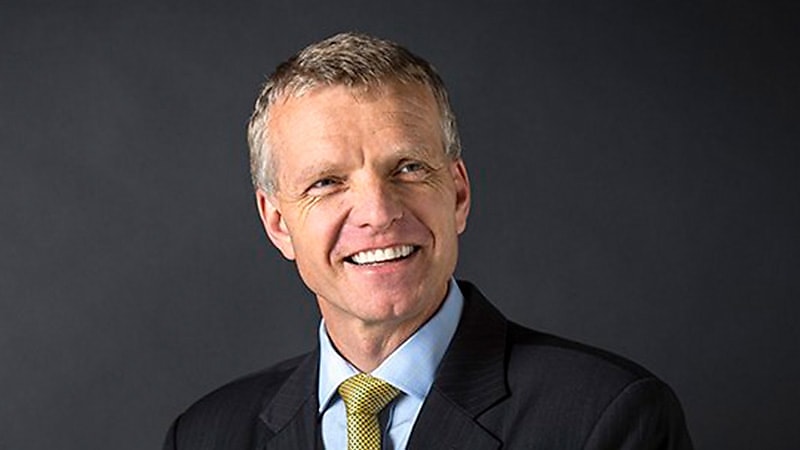CA ANZ ‘does not support’ $3m super tax changes
Responding to the Senate inquiry on the measures to reduce the tax concessions for super balances above $3 million, CA ANZ put forward what it called a “simpler approach”.
Following CA ANZ superannuation and financial services leader Tony Negline appearing before the Senate Economics Legislation Committee inquiry on Treasury Laws Amendment (Better Targeted Superannuation Concessions and Other Measures) Bill 2023, the accounting body put forward an alternative to the super reforms.
“On balance, CA ANZ does not support the measure to reduce the tax concessions on individuals’ superannuation when total super balance exceeds $3 million,” it said in a statement.
“We believe a simpler approach may be for the government to say that a superannuation fund member cannot have an account balance of more than $10 million unless that person is in receipt of structured settlement contributions, personal injury orders or total and permanent disablement benefits.”
Effectively, CA ANZ said, anyone with an account balance of greater than $10 million would be required to withdraw that money from the superannuation system.
“They should be required to do this over a three-year period or longer if the Australian Taxation Office (ATO) approves,” it said.
“Any benefits should be tax-free to the recipient and capital gains tax should not have to be paid by the superannuation fund when disposing of an asset in order to make this benefit payment.”
However, CA ANZ acknowledged that there would be other policy issues to arise from its proposal.
“For example, there is an argument for saying that those already with a high superannuation balance should be quarantined from a compulsory withdrawal requirement,” it said.
“And if such a policy were to be introduced it should only take effect after a reasonable transition period.”
Reiterating the “large number of reasons” that it does not support the bill as it stands, CA ANZ said the complex design features of the policy will add considerable cost to administer the whole superannuation system.
“It alters the tax mix for those saving for retirement which requires certainty,” CA ANZ said.
“It creates uncertainty which will discourage many from making additional contributions towards their retirement, we question how much net revenue will be raised from this measure, we believe there may be better solutions available to the government.”
It also added that the current design of the policy taxes unrealised gains, which is likely to cause cash flow concerns for several funds.
 David
David
As we all see quite plainly by now, that what you propose makes too much common sense.
We will already have a NIL threshold in retirement for super funds and a 15% tax threshold (funds above TBC). A 30% tax threshold, whether or not it is agreed that that should be allowed, makes perfect, logical sense.
Or have excess funds removed, without penalty and let the tax on TBC run long enough to have an effect as more baby boomers it retirement.
Also, we all know that govt loves red tape so that it can employ yet more public servants and demoralise the general public even more.
Hence the current proposal that has been outed by professional organisations like accounting, financial and legal organisations, as a nonsense.
Thank you SMSFAdvisor for keeping up the fight and updating us with information.
1 No reason why they can't have a system similar to the two-tiered company tax rates.
No reason why they can't have a system similar to the two-tiered company tax rates.
If Gross Income is above the legislated threshhold, the company pays 30% tax; if below, it pays 25%.
Every Fund reports Gross Income on its Tax Return, so not hard to work out.2 The other option is to increase minimum pension withdrawal rates by say 50% if you are over the $3m threshold.0
The other option is to increase minimum pension withdrawal rates by say 50% if you are over the $3m threshold.0 Anyone that listened to the few minutes the Senate Committee allowed for these representations would have been left feeling that tone deaf is a suitable assessment. The interest was in the retired judges position but SMSFs seemed to be lost in the mix.
Anyone that listened to the few minutes the Senate Committee allowed for these representations would have been left feeling that tone deaf is a suitable assessment. The interest was in the retired judges position but SMSFs seemed to be lost in the mix.
Whilst I don't support the proposal as designed, I think that alternatives that allow for increased taxation have to be canvassed. No-one will support compulsory withdrawal, even the overwhelmingly complex Super17 changes didn't require any more than a removal of retirement phase balances back to accumulation.
The Div 296 policy is attempting to straddle all super and has an objective of "sector neutrality" which most know is impossible when you have 3 distinct pots - SMSFs, APRA funds and defined benefit interests. The only one able to quietly slot into this new tax are the APRA funds which has been Tsy intent. Limit the impact, make it easier to get through.
Defined benefit interest have been carved out to very complicated Regulations to try and get the square peg into the round hole. SMSFs also need Regulations to get the taxable amount back to actual income and remove unrealised gains. Paper gains come and go hence why they aren't taxed - a lack of "symmetry" between the imposition of the gain and the cash to pay the tax.
Even the one instance of unrealised gains being subject to tax - when a person becomes a non tax resident - has the ability to elect to defer the tax until the actual sale (alignment). If the NR does sell whilst out of Aust, they have NR MTR rates. If they instead wait to sell until they are again an Aust resident, they are back in the standard capital gains regime.
So we have a very dangerous precedent being set here. (Family Trusts look like sitting ducks as we all remember the attempt to flat line trust income at 30%. It has a familiar ring about it.)
Ultimately, this is poor policy design and could have achieved the same result - additional tax for large balances without introducing taxing of unreleased gains. The problem is that it wouldn't have suited APRA funds so the remainder of the system just has to get its pegs to navigate the "round hole'2








